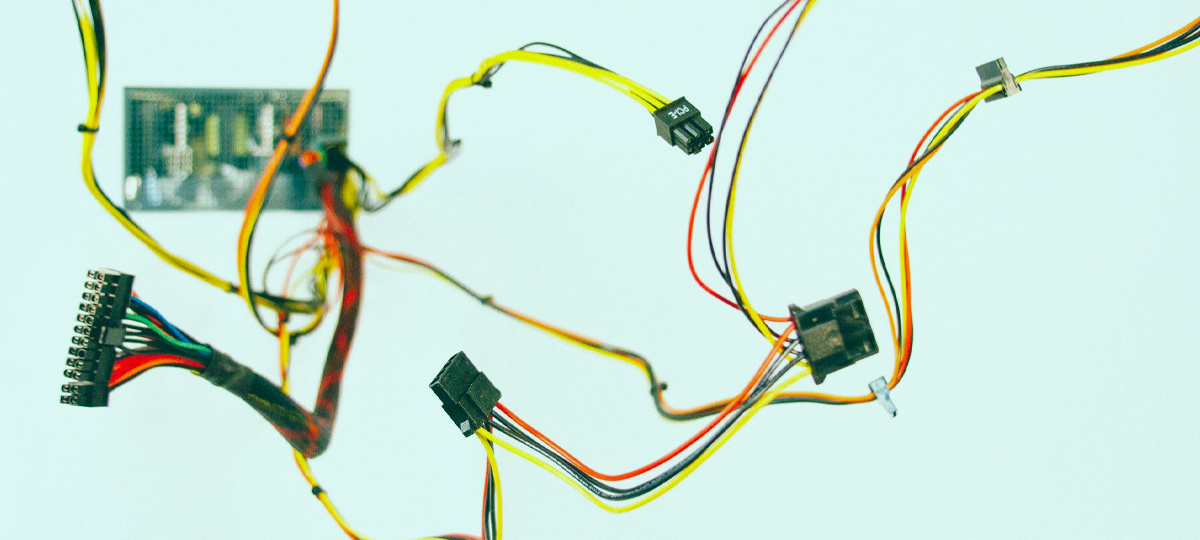Code | Professional Development
Principles of Clean Code Every Developer Should Master
By: X-Team
April 27, 2025 6 min read

Clean code isn't just about elegance. It's about survival — for your project, your team, and your future self. In a world of remote teams, asynchronous handoffs, and fast-moving deadlines, the quality of your code has never mattered more.
Bad code doesn't just slow you down today. It becomes a tax you and your teammates pay for weeks, months, even years to come. Every workaround you add, every clever hack you leave undocumented, every rushed feature compounds technical debt that will slow future progress to a crawl.
Clean code, by contrast, keeps teams fast and flexible. It's how you respect your own time — and everyone else's. It's the foundation that lets you build bigger, scale faster, and hand off work without fear. In a remote, distributed world, clean code isn't a luxury. It's the baseline for professional development.
If you want to build software that lasts — and careers that grow — you need to master the principles of clean code.
Why Clean Code Matters More Than Ever
Clean code has always been important, but in today's environment, it’s absolutely essential. Modern development isn't just faster — it's distributed, collaborative, and constantly evolving. Without clean code, even the best teams struggle to maintain momentum. Here's why clean code matters more than ever before:
Remote Teams Rely on Code That Communicates Clearly
Today's development teams are distributed across cities, countries, and time zones. Developers often work asynchronously, passing off tasks without direct conversation. In this environment, your code needs to explain itself clearly. A teammate debugging your function at 2 AM shouldn’t have to guess what it does or why you wrote it that way. Clean code bridges the gap between time zones, teams, and continents — keeping work moving even when you're offline.
Scaling Systems Means Scaling Understanding
As products grow, so do codebases — and so do teams. Onboarding new developers needs to be frictionless if you want to maintain momentum. Clean code lowers the learning curve, helping new team members contribute faster and with more confidence. Without it, even small mistakes can ripple across systems, causing slowdowns and costly regressions. Scaling isn’t just about adding more features. It’s about keeping systems understandable as they grow.
Fast-Moving Teams Can't Afford Technical Debt
In today’s fast-paced software world, speed is essential. But messy, inconsistent code slows teams down over time, creating technical debt that drags on every future decision. Clean code isn’t about making things pretty — it’s about making sure you can move quickly without breaking everything behind you. Teams that prioritize clean code maintain their velocity longer, make smarter pivots, and recover from mistakes faster.
Core Principles of Clean Code
Understanding why clean code matters is only the first step. Actually writing clean code requires applying certain principles consistently, no matter the language, framework, or project size. These principles aren't rules for the sake of rules — they’re hard-earned lessons from decades of software development, refined by teams who learned the hard way what happens when you don't follow them. Mastering these principles doesn't just improve your code. It changes how your team moves, grows, and succeeds.
KISS: Keep It Simple, Stupid
Complexity is a silent productivity killer. Every extra abstraction, every unnecessary optimization, every clever but confusing shortcut you add increases the mental load for every developer who touches your code later — including you.
KISS is about fighting that complexity at every step. When you write code, ask yourself: is there a simpler way? Could this function do less? Could this class have fewer responsibilities?
Consider a team that adds multiple caching layers to a service before any real performance issues exist. Instead of speeding things up, the added complexity introduces confusing cache invalidation bugs — costing far more time to debug than the original system would have required. Overcomplicating too early creates problems instead of solving them.
DRY: Don't Repeat Yourself
Duplication multiplies mistakes. When the same logic exists in two, three, or ten places across a codebase, every change risks inconsistency. Bugs creep in when you fix one copy but forget the others. Features slow down because no one is sure how many places need to be updated.
Good code consolidates knowledge. When multiple places need the same logic, extract it once and reuse it. Be deliberate: copy-pasting once to move quickly might be fine, but letting that duplication sit leads to chaos.
It's common to see validation logic duplicated across both frontend and backend systems. When these copies inevitably drift apart, customers experience inconsistencies — like submitting a form that passes frontend checks but fails server-side validation. Fixing these inconsistencies wastes time and erodes user trust. Duplication multiplies the risk of failure across your system.
YAGNI: You Aren't Gonna Need It
Overengineering is tempting. It feels smart to "build for the future." But in reality, most "future needs" never materialize — and the overbuilt complexity you added ends up as dead weight.
YAGNI reminds you to build only what you need right now. Design for change, but don't code for imaginary use cases that might never come.
Teams sometimes spend months building flexible plugin systems or feature flags for products that haven't even launched. These features add weight and complexity — and often end up unused because the product never scales to need them. Premature architecture can sink projects before they ever reach real users.
Composition Over Inheritance
Inheritance feels natural early in projects — but it quickly becomes a trap. Deep inheritance chains are rigid and fragile. One change at the top of the hierarchy can break code far downstream in ways no one expects.
Composition, by contrast, is flexible. It lets you assemble small, simple parts in different ways depending on what you actually need. It keeps systems easier to extend and modify without breakage.
Many legacy systems suffer from deep inheritance hierarchies where making a small change requires understanding layers of parent classes. Adding new features or fixing bugs in these systems often becomes an exercise in frustration and risk. Composition makes systems easier to extend without fear of hidden side effects.
Readability Over Cleverness
Write code for humans first, machines second. Code that is concise but obscure wastes far more time than it saves. Cleverness impresses nobody when it makes bugs harder to find and fixes harder to implement.
Prioritize clear naming. Break down complex operations into well-named helper functions. Write your code like you're explaining it to a smart but busy teammate — because you are.
In many codebases, you'll find critical functions condensed into dense one-liners packed with advanced language features. While technically impressive, these shortcuts make maintenance slower and debugging riskier. Readable, explicit code enables teammates — and future you — to work faster with less confusion.
Consistency Over Chaos
Consistency isn't glamorous, but it's what makes fast, collaborative development possible. Consistent naming, folder structure, API design, and coding patterns allow developers to navigate and extend codebases without constantly second-guessing themselves.
Chaos forces teams to stop and think about formatting, folder location, parameter order. It breaks flow. It introduces tiny but constant drag on every task.
It's common to see teams fragment when different groups adopt inconsistent style guides, folder structures, or naming conventions. Integration becomes painful, shared libraries turn brittle, and every project feels like starting from scratch. Consistency lowers the mental overhead and keeps teams aligned as they scale.
What Clean Code Looks Like in Real Teams
Clean code transforms how teams operate. It's not just about fewer bugs or prettier code — it's about smoother collaboration and faster iteration at every level.
- Pull requests are smaller, clearer, and reviewed faster. Reviewers spend less time deciphering code and more time thinking about design and edge cases.
- Onboarding happens in days, not weeks. New developers can jump into features, fix bugs, and make meaningful contributions without constant hand-holding.
- Technical debt stays manageable. Small issues get fixed before they become massive problems. Refactoring is safer because code is already modular and readable.
- Debugging is less painful. You spend less time guessing what the code might do and more time actually understanding what it is doing.
- Collaboration feels natural. Code is structured predictably. APIs feel intuitive. Changes ripple cleanly instead of causing surprise regressions three services away.
- Velocity increases over time. Instead of slowing down as complexity grows, the team’s ability to deliver compounds because the codebase supports progress rather than fighting it.
Clean Code Is an Investment in Future Progress
It’s easy to cut corners in the rush to ship. It’s easy to justify messiness with "we’ll clean it up later." But later often never comes — and the mess hardens into technical debt that strangles future work.
Investing in clean code today protects your ability to move fast tomorrow. It saves time, money, and energy that would otherwise be wasted fighting your own codebase.
It also protects your career. Developers known for leaving behind clean, understandable code are the ones trusted with leadership roles, complex projects, and greenfield opportunities. They’re the ones teammates fight to work with.
Master the principles. Apply them every day. Build the kind of systems — and careers — that keep moving forward, no matter how big the challenges get.
TABLE OF CONTENTS



